

HEALTH PROMOTING SCHOOLS


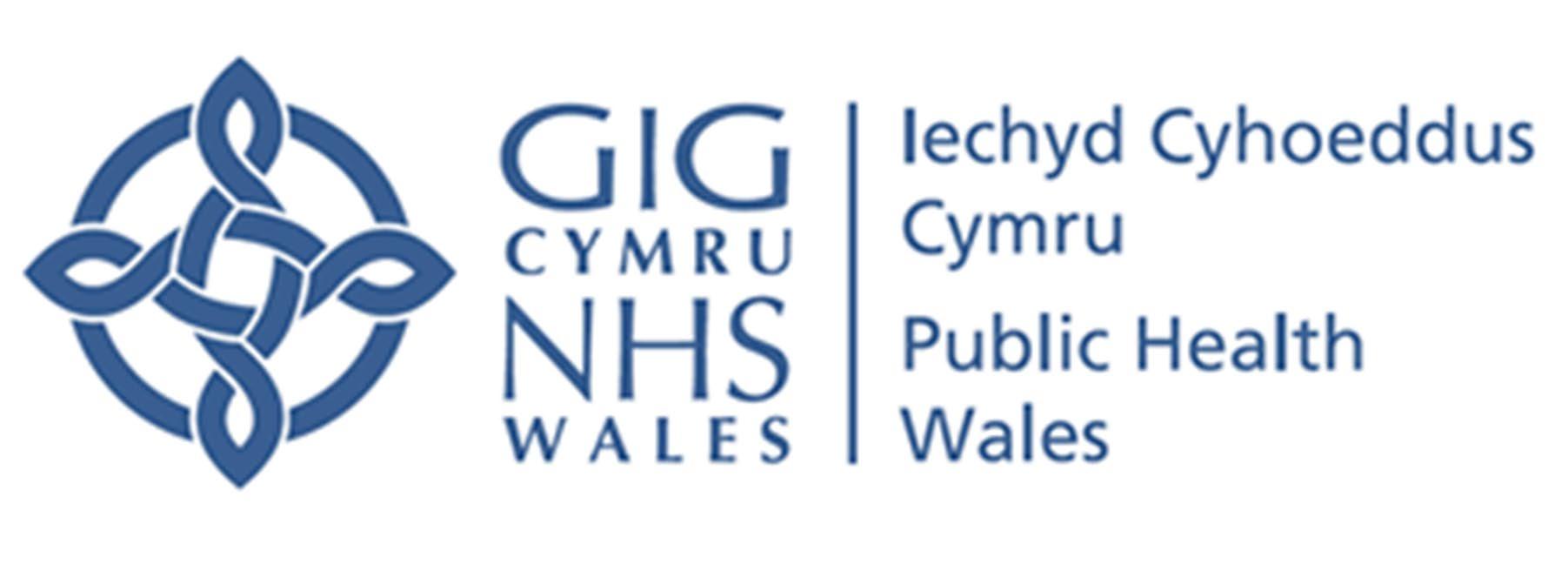
How are schools implementing the Whole School Approach to Emotional and Mental Well-being?
Amy Davies, Principal Public Health Practitioner, Public Health Wales
Schools across Wales are implementing the Welsh Government statutory ‘’Framework on Embedding a Whole School Approach to Emotional and Mental Wellbeing’ (WSAEMWB). The framework aims to support schools to promote positive mental well-being, prevent mental ill health, and take action to support individuals where needed.
Public Health Wales have completed two process evaluations to understand how schools have been embedding the WSAEMWB. The first looks at how schools are embedding self-evaluation to understand the needs and strengths of their school community; the second
Rhian Fewtrell,
Senior Public Health Practitioner, Public Health Wales
discusses the planning and implementation of actions to meet their well-being needs.
What did we do?
We used realist-informed case study methodology to explore: - how schools have engaged with the self-evaluation process as the first stage of the WSAEMWB, to understand the needs and strengths of their school community. - how schools have planned and implemented actions that meets their identified wellbeing needs.
We held interviews, focus groups and surveys with school staff and workforce (Implementation Coordinators of the WSAEMWB based
in Health Boards and Local Authorities) across every area of Wales. As well as analysing the responses from schools and the workforce, we examined routine monitoring data and completed a documentary review of key paperwork, tools and plans.
What did we find?
We identified key themes associated with successfully embedding self-evaluation. These are; School Culture & Ethos, Leadership, Whole School Involvement & Engagement, and Applying Continuous Improvement approaches. These areas are intertwined with each other and encourage ways of working that support schools
on their implementation journey. It appears to be important that schools work on structured reflection and fostering inquiry-based approaches. Developing inclusive whole-school dialogue and methods to reach a consensus on priority areas for action facilitates successful implementation.
We also found that having a school culture that prioritises well-being was fundamentally important in helping schools successfully plan and implement well-being actions. Some of the ways schools have developed a well-being culture include building relationships within the school community; shared values and beliefs; promoting pupil compassion; mutual respect; a connected school community; a supportive leadership team. A sense of belonging to the school was another key factor that made a difference to successful planning and implementation of action. Having a sense of belonging includes feeling accepted, respected, included and supported. In the broader school context having consistent and integrated support from partners helps maintain school relationships and encourages progress with planning and implementation of actions.
Implications for practice
Engagement across the whole school community along with commitment from Leadership is crucial to successful and continually improving implementation. Investing time into developing a sense of belonging and school connectedness with learners, families and staff is crucial. And building relationships with partners and wider services can strengthen access to appropriate support. Visit the Public Health Wales Webpage to read more top tips for schools and system partners.

Want schools to be Smoke Free? Team up with JustB
Caoimhe Pugh,
Smoking Prevention Trainer JUSTB Team Public Health Wales
Smoking remains the leading cause of avoidable ill health, early death and health inequalities in Wales. The Welsh Government has recently committed to an ambitious plan to create a smoke free Wales by 2030.
The JUSTB smoking prevention programme is delivered over 8 weeks in selected high schools across Wales. The Programme addresses the influence of peer interactions and friendship ties on the uptake of regular smoking. Identified by peers, influential students from year 8 attend a two-day training course, facilitated by ‘JUSTB’ smoking prevention trainers. The training and follow up sessions raise awareness of the tobacco industry’s approach to recruiting
smokers, highlighting health and other impacts of smoking to individuals and their communities.
The programme is designed to motivate, empower and enable young people to discuss the risks of smoking in informal and supportive environments. The structured Programme offers opportunities to debate, learn and develop skills to have successful smokefree conversations. The JustB programme introduces information on e-cigarettes and vapes as well as tackling illegal and illicit tobacco which is a growing threat in Wales and contributing towards health inequalities.
The training programme concludes with a school assembly. The ambassadors
deliver a presentation to their year group on the work they’ve completed with team JustB. The programme is well received in schools by staff and students. We are pleased to be able to share the following feedback:
‘I knew this would be a great opportunity for our school, and I was not disappointed. Pupil health and wellbeing is very important at our school. We recognised that taking part would contribute to pupils’ physical wellbeing and meets the principles of the new curriculum for Wales. I was really impressed with the strategy of identifying influential members of the year group. The programme involved a huge range of engaging and educational activities, keeping the pupils
April 2025: Health Promoting Schools on their toes and maximising opportunities for learning. The pupils were all thoroughly engaged.’ – Assistant Head for Wellbeing.
‘It was an interesting experience, partly because some of it was just having fun and doing fun activities, Then the rest of it was us learning facts and sometimes having serious conversations which is an interesting combination’ – Smokefree Ambassador.
This school year 2024/2025 the JustB team will complete smoking prevention training in around 45 schools across
Wales arming approximately 1,300 young people with skills and knowledge to have smokefree conversations with over 6,000 year 8 peers across Wales. The programme gives young people the tools, knowledge and skills to make informed choices about themselves, their health and their future. It contributes towards lowering the smoking prevalence of young people in Wales which we have seen drop from an average of 9% in 2018 to an average of less than 3% in 2023 (SHRN Data dashboard, November 2024). We continue to work in partnership with schools
towards the ambition of a smokefree Wales and look forward to when team JustB retires ourselves!
JUSTB - Public Health Wales
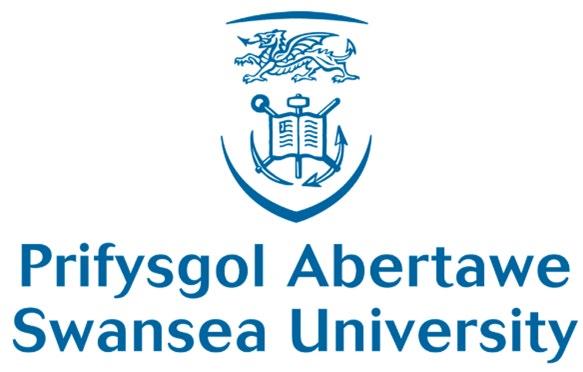
Research
Co-developing health literate children through the Health and Well-being Area of Learning and Experience
Dr. Emily Marchant, Lecturer in Education, Swansea University
The Curriculum for Wales provides a framework for children to develop the knowledge, skills and attitudes they need to thrive now and into the future. This includes a focus on health through the Health and Wellbeing Area of Learning and Experience and it’s Four Purposes. Health literacy the ability to find, understand and use information to make healthy choices, has a key part to play in this (1). Schools are an important place to help develop and promote health and wellbeing and as a result, health literacy (2). In primary schools especially, there is a promising space to allow children to learn healthy habits that track into adulthood (3). Led
Dr. Michaela James, Research Officer, Swansea University
by researchers at Swansea University, we wanted to find out what teachers and children know already about health literacy and their views on the Health and Wellbeing Area of Learning and Experience so far.
Health literacy was identified as a priority in Wales in 2010 and since then, education policy and public health developments have attempted to focus on it (1, 4, 5). However, there is still limited research on how health literacy is understood and put into teaching and learning. To address this gap between policy and practice, this study carried out interviews with two headteachers and 6 classroom teachers alongside
Levi Hughes, Research Assistant, Swansea University
focus groups with 24 children (aged 7-11) across four schools. The findings revealed that whilst teachers and children in primary schools do value health skills and learning, it is met with limited confidence and awareness regarding its design, how it can compliment other curriculum topics, how it can be assessed and how it can be applied across different learning abilities. This highlights the importance of clearer guidance and resources for both teachers and children.
The research paper for this study is currently in-draft. It‘s potential impact is focused on identifying and co-developing effective actions that aim to further support the embedding of the Health and Wellbeing
Area of Learning Experience into the curriculum and ultimately impacting health literacy. From a teacher’s point of view, these actions focused on learning opportunities to strengthen their professional confidence and awareness of health literacy included training curriculum leads, whole-school training and increased opportunities for collaboration with Higher Education Institutions (HEI’s) to form a better evidencebase and understanding of school needs. From the perspective of children, they wanted more interactive and practical activities relating to health literacy. Examples of these included outdoor games or board games, making collaborative posters in class and food-based or cooking activities.
The key messages from this study are how health literacy is not currently a considered outcome of teaching and learning for primary schools in South Wales. There is a disconnect between policy intentions and the reality of life in schools, the value of engaging learning opportunities for both teachers and children and the potential for interdisciplinary collaboration relating to health literacy.
To find out more about this study, please contact us at: m.l.james@swansea.ac.uk
e.k.marchant@swansea.ac.uk
For more of our research, please visit: https://happenwales.co.uk/ or contact: happen-wales@swansea.ac.uk
References
1. Putoni S. Health Literacy in Wales. A Scoping Document for Wales [Internet]. Cardiff: Welsh Assembly Government; 2010 [cited 2025 Apr 7]. Available from: Health Literacy Scoping Document
FINAL Sarah Puntoni.pdf
2. Paakkari L, Inchley J, Schulz A, Weber M, Okan O. Addressing Health Literacy in Schools in the WHO European Region. Public Health Panorama [Internet]. 2019 [cited 2025 Apr 4). Available from: doi: 10.1016/S01406736(23)00104-6
3. Otten C, Kemp N, Spencer M, Nash R. Supporting children’s health literacy development: A systematised review of the literature. International Journal of Educational Research 2025 Apr 7]; 115(102046): 1-18. Available from: https://doi.org/10.1016/j. ijer.2022.102046
4. Senedd Cymru. Health literacy: more than being able to read pamphlets, make appointments and understand food labels? [Internet]. Cardiff: Senedd Research; 2023 [cited 2025
Apr 7]. Available from: Health literacy: more than being able to read pamphlets, make appointments and understand food labels?
5. Senedd Cymru. Health and Social Care Committee Sixth Senedd Research [Internet]. Cardiff: Senedd Cymru; 2019 [cited 2025 Apr 8].
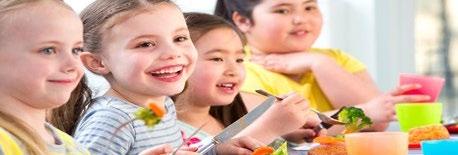
Meals that Matter: An Evaluation of Universal Free School Meals in Wales
Amy Locke,
PhD Researcher, The Centre for Population Health (CPH), Swansea University
In 2022, Wales became the first UK nation to introduce Universal Free School Meals (UFSM) for all primary school children aged 4–11. Previously, families could only access free school meals if they were means-tested, leaving out many low-income families still living in poverty. UFSM aims to reduce these inequalities; tackling food insecurity and improving health. Our research explores the early impact of UFSM on children’s health and wellbeing. Using surveys and by talking to children, our study explores not just health outcomes but also the broader role school meals play in children’s daily lives.
Access to good quality meals
Dr Michaela James,
Research Officer, The Centre for Population Health (CPH), Swansea University
is vital for children’s growth, development, and wellbeing. A recent scoping review [1] of UFSM globally, found that it does improve children’s overall health, reduces inequalities, and benefits families by removing foodrelated stress. Notably, longer engagement with UFSM was linked to better health outcomes.
In Wales, we evaluated early UFSM outcomes using data from the HAPPEN Cohort (Health and Attainment of Pupils Primary Education) [2], which has tracked health and wellbeing trends since 2018. We have not seen any significant changes in wellbeing indicators, but this is possibly due to the limited
Prof Sinead Brophy,
Professor in Health Data Research, The Centre for Population Health (CPH), Swansea University
time this has been on offer. We have seen uptake of meals improve. To understand pupil experiences, we have spoken to Year 6 pupils across three local authorities (five schools in total). Many children reported poor food quality, limited menu options, and reduced portion sizes, particularly affecting older pupils. However, in schools where pupils had strong relationships with kitchen staff, satisfaction was higher. Children also talked about how important lunchtimes are for friendships and play. While nutritional outcomes are yet to emerge, the school meal experience has an impact on children’s social and emotional experiences.
energy from and choosing the more nutritious options over the high sugar food and drinks choices. This is especially important during periods of stress where the temptation for energy drinks and high sugar foods and drinks can be increased.
The final activity that the pupils took part in was a guided relaxation session which showed them a strategy to help combat stress, relax and unwind. Pupils rested comfortably and were guided through a script describing a peaceful place where they had to imagine the words being read out.
These workshops aimed to provide pupils with the knowledge and tools to help develop positive health behaviours during the stressful exam period and provided them with the knowledge to make healthier informed choices.
If you would like to find out more about the BCUHB Health Improvement Team please contact the team on 03000 859 625 or bcu. healthimprovementteam@ wales.nhs.uk
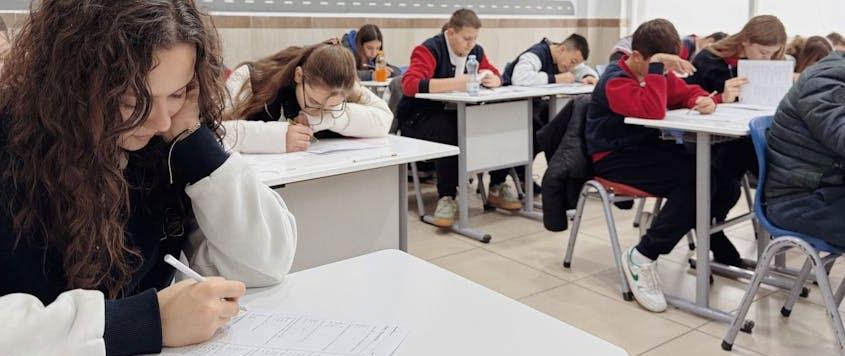
Maintaining Wellbeing in the Transition from Primary to Secondary School
Dr Rhiannon Packer, Senior Lecturer ALN, Cardiff Metropolitan University.
A growing increase in the proportion of secondary school pupils across Wales reporting poor wellbeing, has been further exacerbated since the Covid-19 pandemic, rising from nearly 1 in 5 (19%) in 2019/2020(1) to nearly 2 in 5 by 2022/23(2). Teachers have witnessed the impact of poor wellbeing among pupils during this time(3).
There is a lack of research exploring the impact transition on the wellbeing of learners in Wales. Our study tracked a cohort of year 6 pupils into year 7, exploring self-assessed rates of wellbeing during this period, using a positive psychology approach.
Dr
Adam Pierce,
Research
Associate, Cardiff Metropolitan University.
Increasing rates of reported poor wellbeing among schoolchildren, highlight the role that education can play in promoting learner wellbeing. The transition from primary to secondary school while exciting, can also be a challenging time for pupils. Data from The Children’s Society(4) demonstrate that year 7 pupils report lower levels of wellbeing compared to their year 6 counterparts.
We explored whether low wellbeing could be ascertained from an online self-assessment conducted at three points during transition from primary to secondary school. We asked pupils from six cluster primary schools of one Welsh-medium secondary school to participate. The
self-assessment drew on the PERMA-profiler, a positive psychology assessment, and was co-constructed with Year 6 and 7 teachers.
We found that pupils’ wellbeing dipped during their transition into year 7, although this gradually improved towards the end of term. Feedback gathered from pupil focus groups found: the self-assessment was useful in informing teachers of issues or ongoing challenges, navigating the pupil-teacher relationship could be difficult. General feedback was that pupils thought the self-assessment a valuable tool in the overall concern and appreciation of their individual wellbeing, with teachers in agreement(5). However, pupils with lower
88% of teachers say that children are happier after playing outdoors.
86% of teachers say that playing outdoors gives children a better understanding of the environment.
Evidence suggests that school playtime initiatives aimed at enriching opportunities to play are linked to a range of improvements in: academic skills attitudes attention behaviour social skills social relations between different groups of children enjoyment of and adjustment to school life.
The United Nations Committee on the Rights of the Child’s General Comment no. 17 emphasises that the playing is of positive benefit to children’s educational development and should be facilitated during the course of every day throughout early childhood education, as well as in primary and secondary school. General Comment no. 17 notes that schools have a major role in the promotion of the right to play across the following areas:
Curriculum demands Educational pedagogy Physical environment of
settings
Structure of the day. A child spends more than six hours a day and 28 weeks of the year at school, for at least 12 years of life, so children have considerable opportunities to play in educational settings.
Play Wales has a range of resources to help schools support play in school every day:
A play friendly school guidance provides information about policy and practice to help school communities take a whole school approach in supporting children’s right to play.
A reading list for teachers – Supporting the right to play in school for those with an interest in improving children’s opportunities for playing at school. Focus on play – Supporting the right to play in schools is a briefing for head teachers, teachers and school governors about the crucial role of children’s play in promoting positive mental health.
Opening school grounds for play is a toolkit to support schools to offer opportunities for children to play at school outside of school hours. Right to play workshop raises awareness about the right to play, supporting children and teenagers to make the case for better opportunities to play and meet up with their friends.
To read the various publications, visit the Resources library on the Play Wales website.
Date for your diary: the International Day of Play will take place on 11 June 2025. It provides an opportunity to draw global awareness to children’s play and schools across Wales have a major role in promoting the right to play for children and teenagers.
This article was originally published in the Children in Wales Spring 2025 magazine. i Prisk, C. and Cusworth, H. (2018) From muddy hands and dirty faces... to higher grades and happy places
Outdoor learning and play at schools around the world, Learning through Landscapes. ii Russell, W. (ed.), Ardelean, A. and Smith, K. (2021) The Case for Play in Schools: A review of the literature, Bristol, Outdoor Play and Learning. Bristol: OPAL.
iii Prisk, C. a Cusworth, H. (2018) From muddy hands and dirty faces... to higher grades and happy places
Outdoor learning and play at schools around the world, Learning through Landscapes. iv Russell, W. (gol.), Ardelean, A. a Smith, K. (2021) The Case for Play in Schools: A review of the literature, Bristol, Outdoor Play and Learning. Bryste: OPAL.
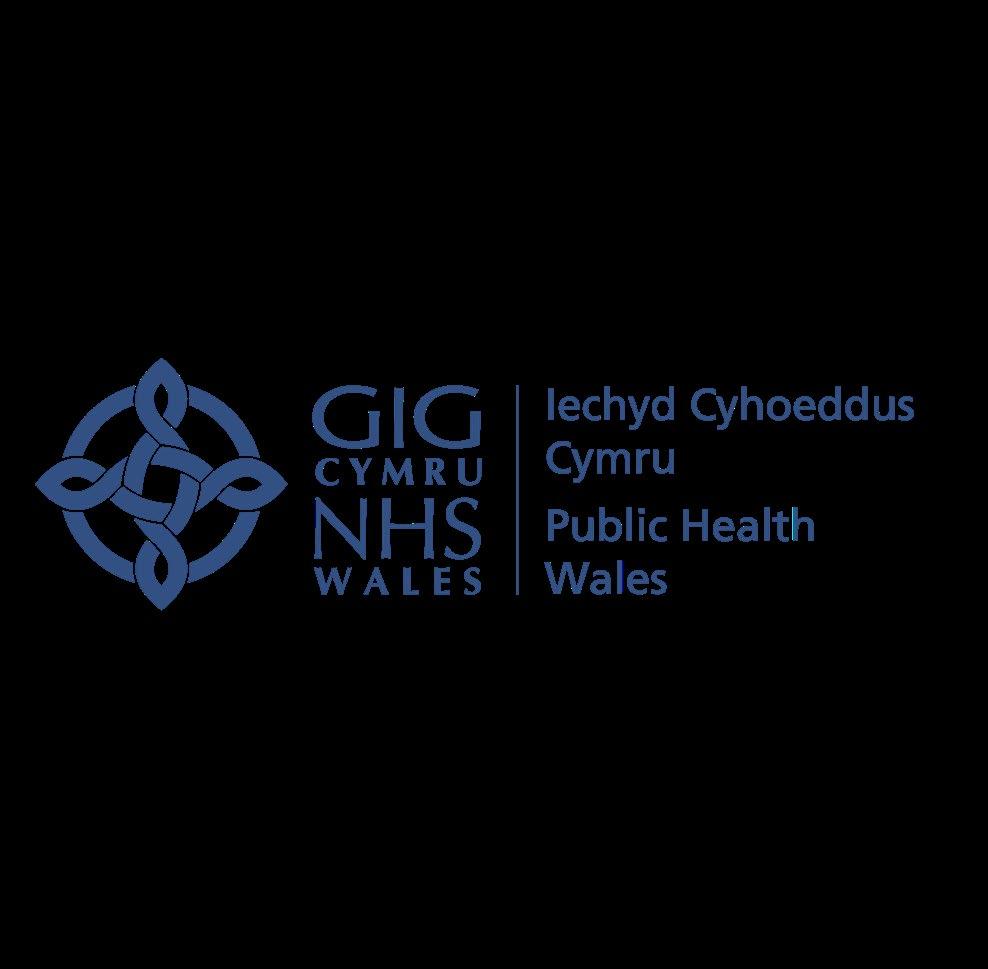
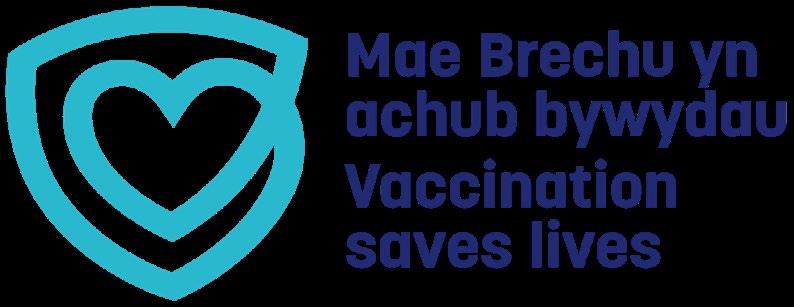
HPV vaccination programme for Year 8 pupils
Vaccine Preventable Disease Programme,
Public Health Wales
HPV is the short name for more than 100 viruses called Human Papillomavirus. It is very common, and 8 in 10 people will get infected at some point in their lives. It usually has no symptoms, which is why it’s so easy to pass on. In most people it clears up quickly, but if it continues, it can cause certain types of cancer.
The HPV vaccine is offered free to all boys and girls who are aged 12 to 13 years (school Year 8). Since the HPV vaccine was widely introduced in 2008, it has reduced cervical cancer rates by almost 90% in women in their 20s. Research suggests that over time the HPV vaccine will help save thousands of lives in the UK
The HPV vaccination
programme is offered in schools for free to all year 8 pupils, and those who may have previously missed their vaccination. The vaccine which is given as a single dose offers long-lasting protection.
Young people who missed their HPV vaccination in school will be given other opportunities to receive the vaccine, either in school or community vaccination centres. They can also contact their school nurse, immunisation team or GP to discuss how to get the vaccine. Young people remain eligible to receive the vaccine up until their 25th birthday*.
For more information, visit:HPV vaccine - Public Health Wales
Help to share the message on the importance of the HPV vaccinations among the relevant audience by downloading and sharing a range of videos and resources available on our online campaign album - HPV Vaccination Benefits
*For boys, this only applies to those born on or after 1 September 2006

Navigating the Storm - A trauma informed programme helping to develop emotional regulation in primary aged children
Dr Tegan Brierley-Sollis,
Lecturer in Criminology and Trauma Informed Approaches, Wrexham University.
Deborah Robert,
Trauma and Adverse Childhood Experiences Practitioner, Wrexham University.
Paula Wood,
Post Doctoral Researcher, Wrexham University.
A multi-disciplinary team from Wrexham University, including experts in Criminology, Education, the TrACE (Trauma and Adverse Childhood Experience) team, Civic Mission, and Recruitment are leading a research project aimed at supporting the wellbeing and emotional regulation of children in schools. The pilot project centres around a workbook inspired by
Lisa Formby,
Education Research Lead, Wrexham University
Catherine Simon,
Trauma and Adverse Childhood Experiences Practitioner, Wrexham University
Dr Karen Rhys Jones, Initial Teacher Education Lead, Wrexham University.
Karen Tilby, School Liaison Officer, Wrexham University
the ‘Navigating the Storm’ animation (1). The workbook demonstrates how using interactive initiatives through a trauma-informed lens can help children better understand their emotions, form meaningful connections, and recognise their individual strengths. This work will contribute to limited research in this area, offering evidencebased insights into effective practices within educational settings.
Project Summary
This pilot project has supported educators in developing pupil emotional self-regulation skills through an evidence-based TrACE ‘Navigating the Storm’ workbook.
The workbook includes flexible resources and lesson plans that can be used in
for good health, such as food and heating. This also reduces stress that can impact our mental and physical health.
“We can’t expect schools to solve the problem of the educational attainment gap alone. Partners need to work together to improve opportunities for the future of our communities, recognising health and education as shared goals. This can happen by supporting learners, families, and communities through
initiatives that strengthen a whole school approach to health and well-being as well as community focussed schools. Additionally, it goes beyond the reach of the school to how we plan our housing systems, and the nature of work for parents that can all affect the opportunities for children, especially those facing disadvantage, to thrive, learn and grow.”
Better join up, better outcomes - a needs assessment around collaboration for child poverty
The Wider Determinants of Health Unit in Public Health Wales, on behalf of the Building a Healthier Wales Coordination Group, are conducting a survey for the ‘better join up, better outcomes – a needs assessment around collaboration for child poverty’.
The survey is for professionals working in formalised partnerships or collaborations in Wales to reduce and/or mitigate child poverty, and asks about your role, your partnership’s alignment to the Child Poverty Strategy for Wales (2024) and examples of good practice.
More information on the purpose of this survey, and your rights as a survey respondent, can be found in this information sheet. Please read this and decide if you would like to take part.
If you would like to take part, here is the link to the survey https://forms.office.com/e/ bme01jYDsM
If you feel other colleagues are suitable to also participate, please forward this email on to them.
If you would like to know more or have any questions, please contact PHW.Determinants@ wales.nhs.uk
Videos

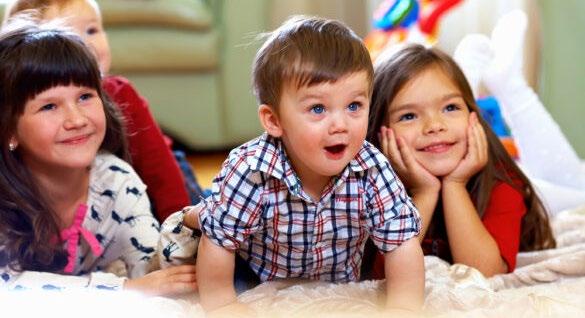


Building Strong Foundations | Cardiff Highlights
The conference aligned with the PHNC objectives of sharing knowledge, facilitating the developments of solutions and approaches and connecting members and building a community.
Building Strong Foundations | Llandudno Highlights
The conference aligned with the PHNC objectives of sharing knowledge, facilitating the developments of solutions and approaches and connecting members and building a community.
WHIASU@20
The landscape of Health Impact Assessment (HIA) has changed massively over the last 20 years, and the Wales Health Impact Assessment Support Unit (WHIASU) have been right at the heart of it since its founding in 2004.
Next Issue
INVESTING IN PREVENTION
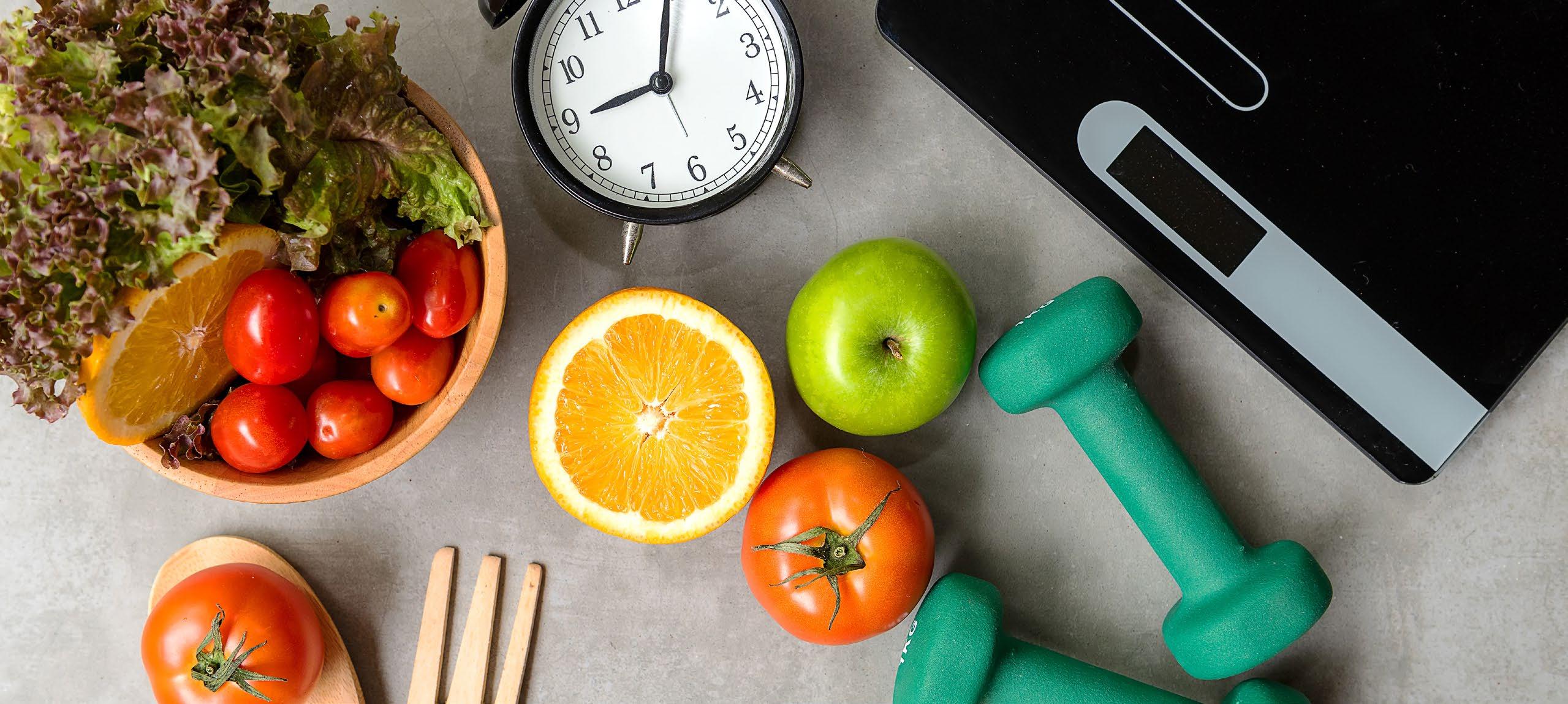
Good health is a fundamental right, but in Wales, health outcomes vary unfairly across communities. Effective prevention initiatives such as early years education, vaccination programmes, smoking cessation and support for carers can deliver great value for money and are essential for prioritising public funding.
They can address health inequalities, reverse the nation’s health decline, and promote well-being. For our upcoming e-bulletin, we are inviting contributions from across Wales for national, regional or local initiatives, policies or programmes that prioritise prevention.
Our article submission form will provide you with further information on word count, layout of your article and guidance for images.
Please send articles to publichealth.network@ wales.nhs.uk by 22nd May 2025.
